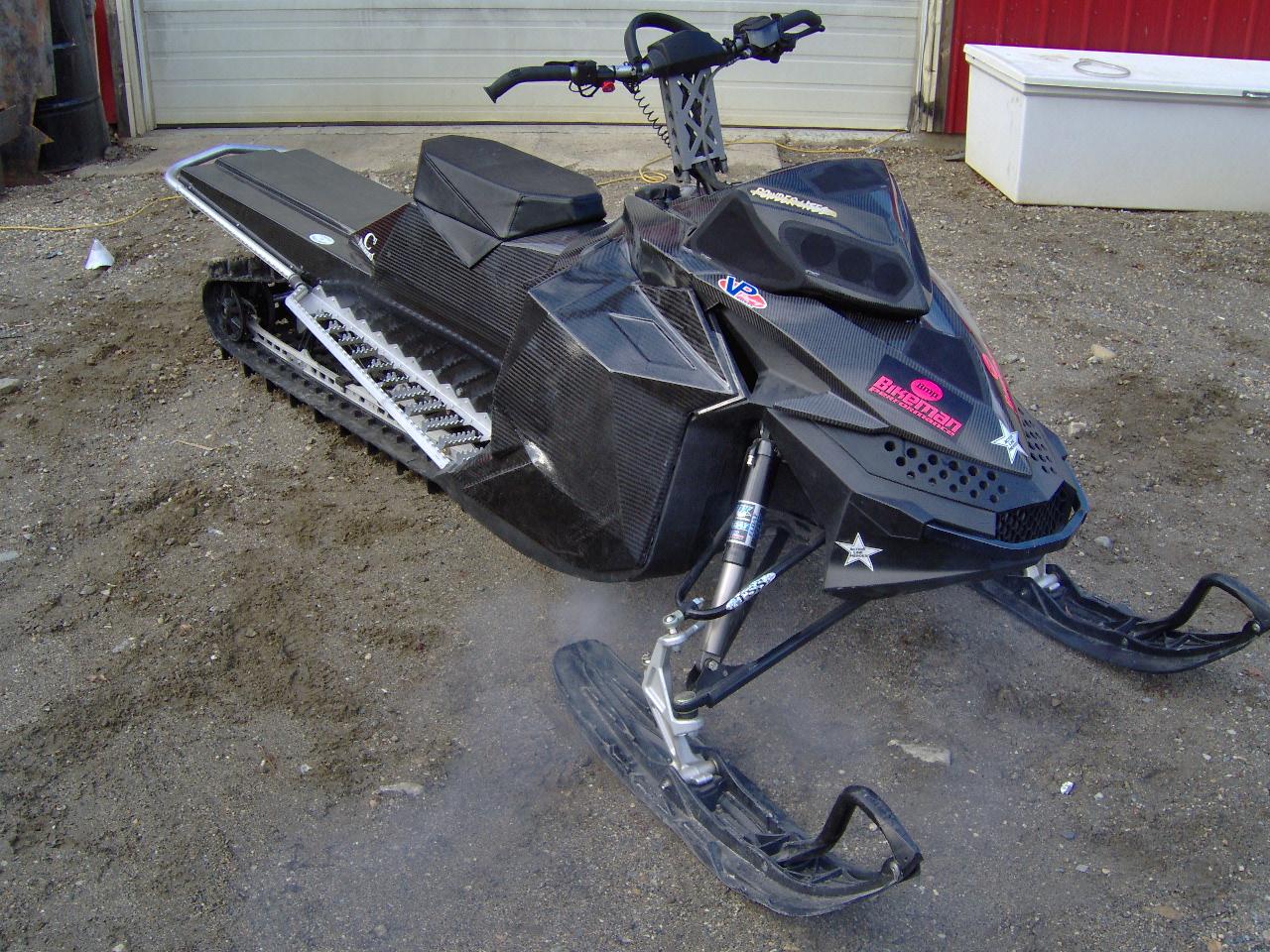
https://www.c3powersports.com/files/styles/uc_product_full/public/hpim1018.jpg?itok=M46UOaRv http://www.bosscatlegacy.com/acproto/productionmod/thundercat.htm
Weight Reduction
Snowmachine manufactures have been adamantly reducing the weight of snowmachines for many years. In the 1990's the Arctic Cat Thundercat, the snowmachine shown in the right picture was very popular, weighing around 580 pounds. The ski-doo that has been modified by C3 Powersports in the left image weighs in at 383 pounds. Their is roughly a two hundred pound difference between these snowmachines. This two hundred pounds has been cut by eliminating steel chassis parts and replacing it with light weight aluminum or carbon fiber. Polaris, a popular snowmachine manufacturer has even eliminated the use of rivets and decided to glue their snowmachines together because rivets are made out of medal and they wanted to cut the weight. However, the weight that these companies cut from their snowmachines isn't just for bragging rights. These snowmachines are designed to climb mountains and increase both their height and their potential energy. Potential energy=(Mass)(Gravity)(Height), after solving for height, height=(Potential Energy)/(Mass*Gravity). If you consider both the Potential Energy and Gravity as constants, since Mass is in the denominator it has a inverse relationship with the height. So if the same amount of Energy is converted into Potential energy the lighter snowmachine will climb further up the mountain.
Intro Traction Sidehilling Horse Power Weight Reduction Bibliography
